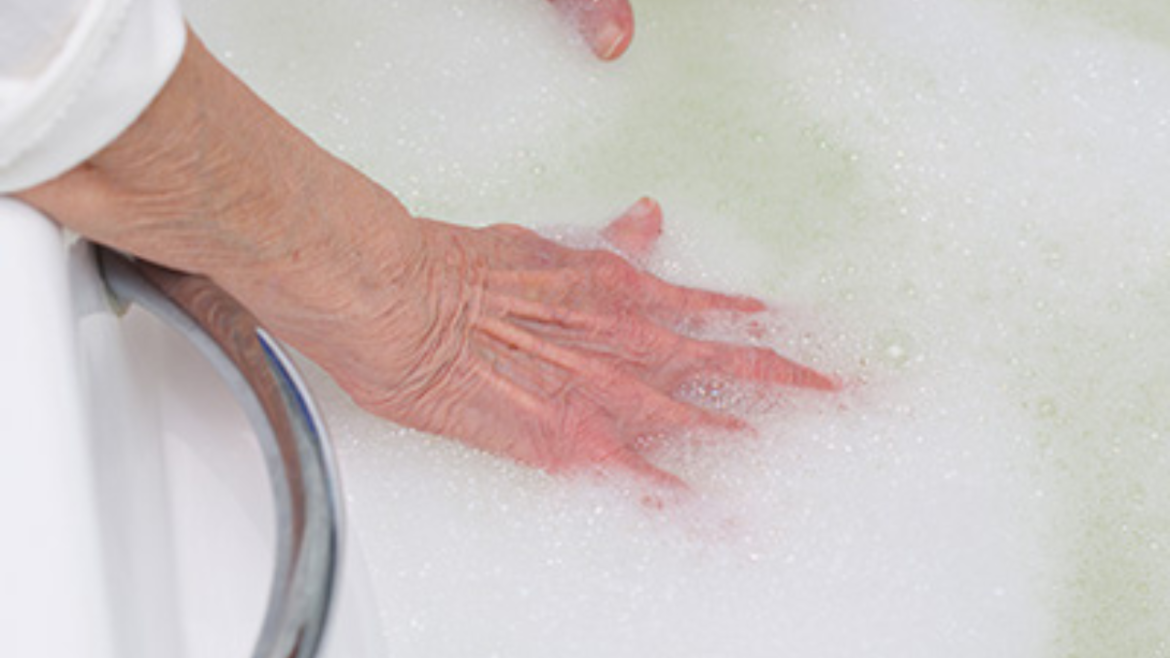Did you know that Leading Edge Senior Care has a Dementia Support Group? We meet monthly in Mesa. For more details <click here>
Why Does Dementia Affect Bathing For A Senior?
The challenges that dementia poses extend far beyond memory loss, often affecting various aspects of a senior’s daily life, including bathing. It’s crucial to delve into the emotional depth and intricate impact that dementia has on bathing routines to comprehend why this seemingly routine task becomes daunting for individuals grappling with cognitive decline.
Exploring how dementia affects bathing necessitates understanding the multifaceted challenges it presents beyond memory impairment.
Dementia and Its Influence:
Dementia, a syndrome resulting from various brain diseases, progressively impairs cognitive abilities, affecting memory, reasoning, and communication. This decline significantly impacts an individual’s capability to perform everyday tasks independently.
The complexities of dementia extend beyond memory loss and encompass a range of cognitive and functional impairments.
Sensory Challenges:
Dementia often alters sensory perceptions, leading to heightened sensitivity to water temperature, textures, or visual patterns. These sensory changes may cause discomfort or confusion during bathing, triggering resistance.
Sensory alterations due to dementia contribute to the discomfort experienced during bathing, impacting a senior’s willingness to engage in this routine.
Loss of Routine and Familiarity:
The disruption of established routines and the inability to recognize bathing as a familiar activity can evoke fear or distress in seniors with dementia. The unfamiliar environment and process may lead to resistance or refusal.
The loss of familiarity with the bathing routine adds to the emotional distress experienced by seniors with dementia, contributing to resistance.
Cognitive Challenges:
Cognitive decline affects a senior’s ability to plan, sequence, or recall steps involved in bathing. The complexity of the task and the inability to follow instructions independently pose significant challenges.
Cognitive impairment interferes with the sequencing and execution of bathing tasks, leading to frustration and reluctance.
Communication Difficulties:
Individuals with dementia often face challenges in expressing their needs or discomfort during bathing. The inability to communicate effectively or comprehend instructions further complicates the bathing process.
Communication barriers hinder the ability of seniors with dementia to express discomfort or understand the bathing process, adding to the difficulty.
Fear and Anxiety:
The unfamiliarity, sensory discomfort, and cognitive challenges associated with bathing can evoke fear and anxiety in seniors with dementia. This emotional response exacerbates resistance or refusal.
Emotional distress caused by fear and anxiety intensifies the reluctance of seniors with dementia toward bathing, leading to more challenging interactions.
Approaches for Assistance:
Adopting a patient, empathetic approach and providing reassurance can alleviate fear and anxiety during bathing. Establishing a consistent routine, using simple instructions, and creating a comfortable environment help ease distress.
Patient, empathetic care combined with a structured, comfortable bathing routine reduces anxiety and resistance during the process.
Conclusion:
Understanding why dementia affects bathing for seniors requires a holistic view of the cognitive, sensory, emotional, and communicative challenges individuals with dementia face. The multifaceted impact of dementia on sensory perceptions, routine disruption, communication barriers, and emotional distress significantly contributes to the reluctance or refusal of seniors to engage in bathing.
Empathetic approaches, structured routines, and a comfortable environment are crucial in mitigating anxiety and resistance, ensuring a more comfortable bathing experience for seniors grappling with cognitive decline.

